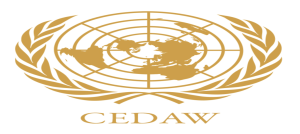Vishakha V/S State Of Rajasthan 1997
CASE BACKGROUND
- Bhanwari Devi was employed as a village level social worker under the Women’s Development Project run by Rajasthan Government since 1985.
- One of the objectives of the program was to curb child marriages.
- As part of her duties, she tried to stop a child marriage in the family of one Ramakant Gujjar.
- Despite there being a visit by the district police authorities, the marriage was solemnized.
- In September 1992, Ramakant Gujjar along with 5 men, gangraped her in front of her husband.
- Initially police dissuaded from filing an official complaint but later on Bhanwari Devi was able to lodge a complaint.
- The trial court aquitted the accused.
- But Bhanwari Devi was determined to get justice.
- So she filed a writ petition along with other social workers under the name ‘Vishakha’.
Argument
- This writ demanded the enforcement of Fundamental rights to working women under Article 14,19 and 21 of the Constitution of India.
- The gangrape incident was considered as the subject matter of a separate criminal action.
JUDGEMENT
- The Court held that incidents like sexual harassment result in a violation of fundamental rights of Gender Equality and the ‘Right of Life and Liberty’.
- One of the logical consequences of such an incident is the violation of victim’s fundamental right under Article 19(1)(g) to practice any profession or to carry out any occupation, trade or business.
- This fundamental right depends upon the availability of a safe working environment.
- It is the primary responsibility of the Legislature and executive to ensure safety and dignity through legislation and its enforcement.
GUIDELINES
- It shall be the duty of the employer or other responsible persons in the workplace to prevent/deter the commission of acts of sexual harassment and provide procedures for resolution, settlement or prosecution of such acts.
Sexual harassment includes :
- Physical Contact and Advances
- Demand or request for sexual favours
- Sexually coloured remarks
- Showing pornography
- Any other unwelcome physical verbal or non verbal conduct of sexual nature.
- All employers , whether in public or private sector, should take appropriate steps to prevent sexual harassment.
- If any offence amounts to a specific offence under IPC or any other law, employer has to initiate complaint.
- Ensure that victims or witnesses are not victimized or discriminated against.
- An appropriate complaint mechanism should be created in organization.
- A complaints committee headed by a woman and at least 50 percent women should be set up.
- Employees should be allowed to raise issues of sexual harassment at workers’ meeting.
- Awareness generation of the rights of female employees.
AFTERMATH
- Based on the Vishakha guidelines, the parliament passed sexual harassment at workplace(Prevention, Prohibition and Redressal ) Act of 2013.
POSH ACT 2013
- The Act defines sexual harassment at the workplace and creates a mechanism for redressal of complaints and safeguards against false or malicious charges.
- Domestic workers are also included under this act.
- Every employer is required to constitute an Internal Complaints Committee(ICC) at each office or branch with 10 or more employees.
- The Complaints Committees have the powers of civil courts and are required to provide for conciliation before initiating an inquiry if requested by the complainant.
- Penalties have been prescribed for employers for non-compliance with the provisions of the Act.
- The State Government will notify the District Officer in every district, who will constitute a Local Complaints Committee (LCC) to enable women in the unorganized sector or small establishments to work in an environment free of sexual harassmenT
INTERNATIONAL CONVENTION

- UN Convention on the Elimination of All Forms of Discrimination Against Women (CEDAW)
- The Convention on the Elimination of All Forms of Discrimination against Women (CEDAW), was implemented in the year 1979 by the UN General Assembly which is often described as an international bill of rights for women.
- It enumerates what constitutes discrimination against women and also sets up a goal for national action to end such discrimination.
➡️UPSC 2023 General Studies Course: https://sleepyclasses.com/general-studies-for-upsc/
➡️Sociology Optional for UPSC : https://sleepyclasses.com/sociology-for-upsc/
➡️Political Science and IR for UPSC: https://sleepyclasses.com/psir-for-upsc/
➡️Signup here – https://sleepyclasses.com/
Have any query related to UPSC preparation: 📞Contact Us ► Toll-Free: 1800 890 3043 ► Mobile: 6280133177 ► Email: Sleepy.Classes@gmail.com ► WhatsApp: 6280133177



